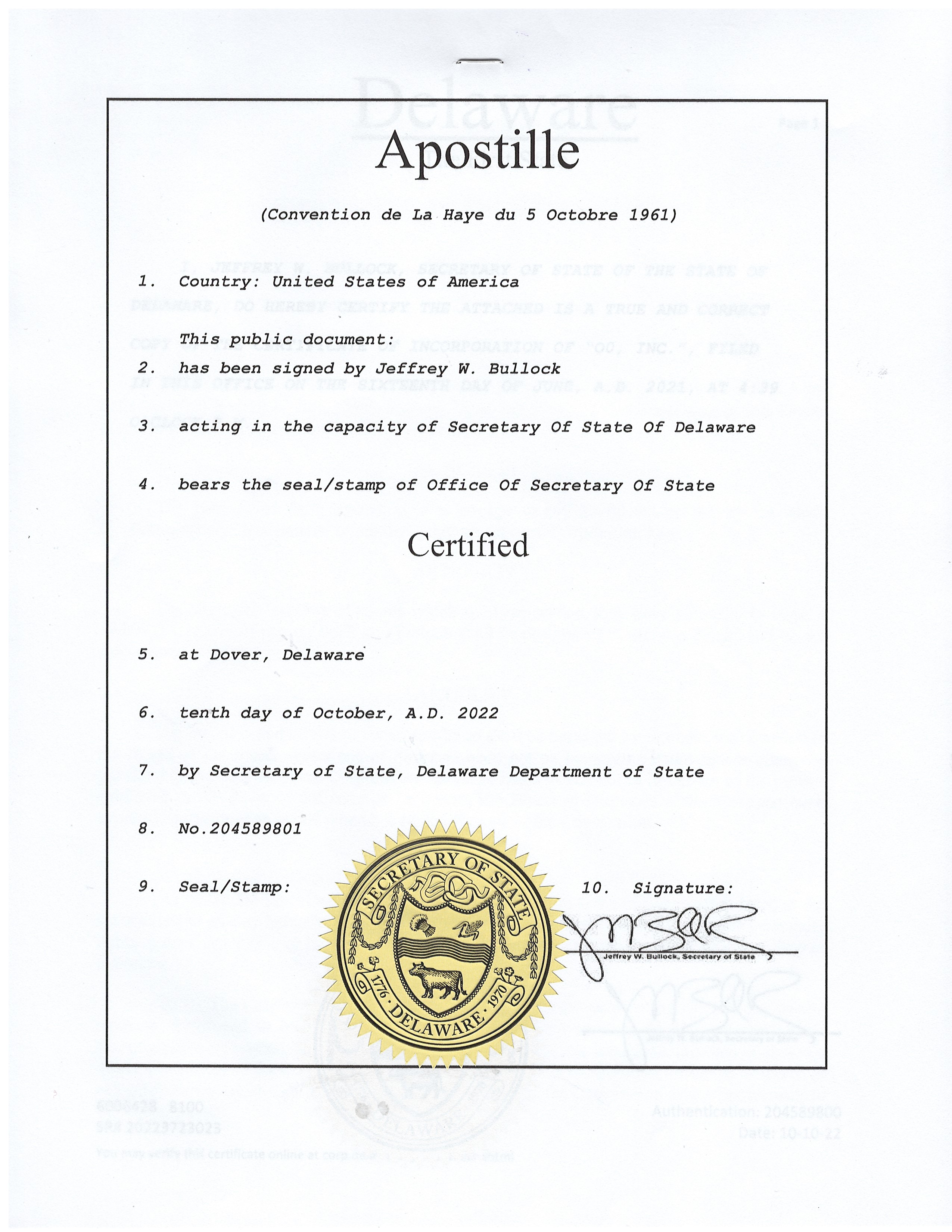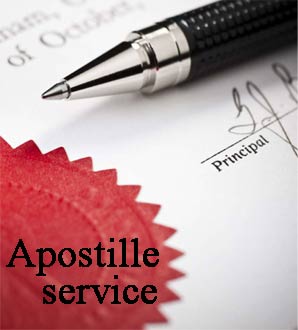Recognizing the Value of Apostille Accreditation and Why It Is Vital for Lawful Files
Among the different devices offered for this purpose, apostille certification stands out as a structured and globally identified technique. Understanding the complexities and implications of apostille certification on lawful papers is important for individuals and organizations involving in cross-border activities.
The Definition of Apostille Certification
Apostille qualification is a specialized type of verification that verifies the authenticity of a lawful file for global usage. This certification is crucial for making certain that papers coming from one nation are acknowledged as valid in an additional, simplifying the procedure of cross-border purchases, legal process, or personal issues like marriage or fostering. The Hague Apostille Convention of 1961 established the structure for this simplified accreditation process amongst participating nations.
To get an apostille certification, the designated authority in the paper's nation of beginning should confirm the paper's credibility before connecting the apostille. As soon as affixed, the apostille ensures that the file will certainly be approved as legitimate in any kind of various other country that is part of the Apostille Convention, without the need for additional accreditation.
Benefits of Apostille for Legal Files
The usage of apostille certification streamlines the global acknowledgment process for legal records, using considerable advantages in promoting lawful rules and cross-border engagements. By affixing an apostille certificate, the document comes to be easily approved in countries that are part of the Hague Apostille Convention, removing the need for more authentication.
Additionally, apostille certification boosts the overall effectiveness of lawful procedures by simplifying the process of validating the authenticity of a document. Generally, the advantages of apostille certification for legal papers are critical in advertising smoother global engagements and guaranteeing compliance with lawful needs across borders.
Apostille Vs. Legalization: Secret Differences
When comparing the processes of apostille qualification and legalization for lawful files, it is necessary to recognize the essential distinctions in their particular verification methods. An apostille is a streamlined form of legalisation that is approved among nations that become part of the Hague Apostille Convention. The apostille process validates the authenticity of the paper and the trademark of the providing authority. It does not call for further embassy or consulate legalisation, making it an extra uncomplicated and affordable method for confirming files globally.
This procedure can be a lot more taxing and pricey compared to obtaining an apostille. The choice in between apostille certification and legalisation depends on the details needs of the nation where the file will be made use of.
Nations Accepting Apostille Certification

While the Hague Apostille Convention has considerably streamlined the procedure of cross-border document authentication, there are still countries that are not party to the convention - Houston TX Apostille. Therefore, records predestined for these countries may need standard legalization treatments with embassies or consulates. It is critical for individuals and businesses taking care of global purchases to confirm the specific needs of the location nation to make sure compliance with their legal standards
Actions to Get Apostille for Documents
To acquire an apostille for your files, you have to start by identifying the proper releasing authority in your country. The issuing authority is normally the federal government department in charge of verifying files, such as the Assistant of State's office. When you have actually recognized the correct authority, the next step is to make sure that your file fulfills all the demands for apostille qualification. These requirements usually include having a trademark from an identified authorities, such as a notary public, and any type of necessary supporting papers.
After verifying that your record meets the requirements, you will certainly need to fill in an apostille application offered by the issuing authority. This type will certainly need information about the document being verified and the nation where it will certainly be made use of. Along try this site with the completed application, you will likely need to send the original paper, a duplicate of your identification, and any suitable fees.

Conclusion
In conclusion, apostille great post to read certification plays a crucial role in guaranteeing the credibility and validity of lawful documents for global usage (Houston TX Apostille). Comprehending the significance of apostille accreditation is essential for organizations and individuals navigating the intricacies of legal issues and cross-border deals. By getting apostille accreditation, celebrations can improve the process of paper confirmation and authentication, ultimately conserving time and sources in the international sector
To acquire an apostille certification, the assigned authority in the document's country of beginning must validate the file's authenticity before attaching the apostille. As soon as affixed, the apostille makes sure that the document will certainly be approved as legitimate in any kind of other nation that is component of the Apostille Convention, without the demand for further accreditation.
By affixing an apostille certificate, the record ends up being readily approved in countries that are component of the Hague Apostille Convention, removing the requirement for further verification.Distinguishing between apostille qualification and legalization discloses the differing acceptance of these authentication methods across various countries, with some countries especially identifying and adhering to the apostille procedure. The apostille qualification is commonly accepted amongst countries that are component of the Hague Apostille Convention, which currently has 118 participant states.